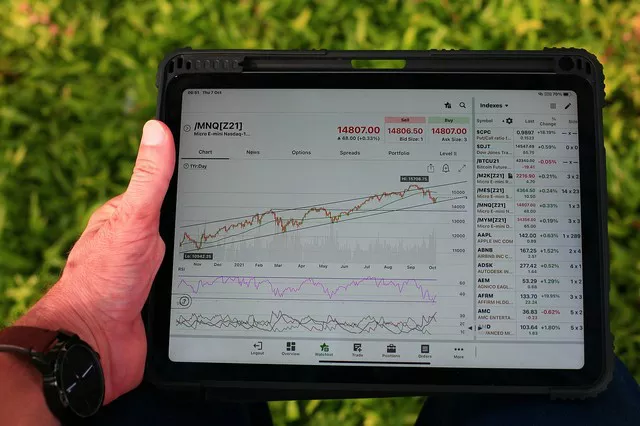In the dynamic world of agriculture, where crop yields, weather conditions, and market prices are subject to constant change, farmers face numerous challenges in managing risk and securing their financial stability. One tool that farmers often utilize to mitigate price volatility and protect against adverse market movements is futures contracts. Futures contracts allow farmers to lock in prices for their agricultural commodities, providing a hedge against price fluctuations and ensuring a more predictable revenue stream. In this article, we delve into the role of futures contracts in agricultural markets and explore whether farmers buy futures to manage risk and enhance profitability.
Understanding Futures Contracts
Futures contracts are standardized agreements to buy or sell a specified quantity of a commodity or financial instrument at a predetermined price on a future date. These contracts are traded on organized exchanges, such as the Chicago Mercantile Exchange (CME) or the Intercontinental Exchange (ICE), and serve as essential risk management tools for market participants, including farmers, processors, traders, and speculators.
Key Features of Futures Contracts
Standardization: Futures contracts are standardized in terms of contract size, quality, expiration date, and delivery specifications. This standardization ensures uniformity and facilitates liquidity in the futures markets, allowing participants to easily buy or sell contracts without the need for customized agreements.
Price Discovery: Futures markets serve as price discovery mechanisms, where supply and demand dynamics, market sentiment, and other factors interact to determine fair market prices for commodities. By aggregating information from market participants, futures prices reflect the collective expectations and beliefs of market participants about future supply and demand conditions.
Margin Requirements: Futures contracts are traded on margin, which means that traders are required to deposit a fraction of the contract value as initial margin to initiate a position. Margin requirements serve as collateral to cover potential losses and ensure the financial integrity of the futures markets. Margin calls may be issued if the value of the trader’s position falls below a certain threshold, requiring additional funds to maintain the position.
Leverage: Futures contracts offer leverage, allowing traders to control a larger position with a relatively small amount of capital. While leverage amplifies potential returns, it also increases the risk of losses, as even small price movements can result in significant gains or losses relative to the initial margin deposit.
Do Farmers Buy Futures?
Price Hedging: One of the primary reasons why farmers buy futures contracts is to hedge against adverse price movements in the agricultural commodities they produce. By entering into futures contracts to sell their crops at predetermined prices, farmers can lock in prices and protect against the risk of price declines during the growing season.
Lock in Profit Margins: In addition to hedging against price risk, farmers may use futures contracts to lock in profit margins and ensure a more predictable revenue stream. By estimating their production costs and expected yields, farmers can calculate the minimum price at which they need to sell their crops to cover expenses and achieve a desired level of profitability. Futures contracts enable farmers to secure prices that meet their profitability targets, reducing uncertainty and financial risk.
Manage Input Costs: Farmers may also use futures contracts to manage input costs, such as fuel, fertilizer, and livestock feed. By purchasing futures contracts for inputs at favorable prices, farmers can mitigate the risk of cost increases and ensure access to essential inputs at predictable prices. This helps farmers budget effectively, plan their production activities, and optimize their resource allocation decisions.
Access to Liquidity and Capital: Futures markets provide farmers with access to liquidity and capital, allowing them to efficiently manage their cash flow and financial obligations. By selling futures contracts for their crops, farmers can lock in prices and generate cash flow before harvest, enabling them to cover operating expenses, repay loans, and invest in their operations. This liquidity helps farmers manage their working capital and maintain financial stability throughout the production cycle.
Price Discovery and Market Information: Participating in futures markets provides farmers with valuable price discovery and market information, allowing them to make informed decisions about production, marketing, and risk management. By monitoring futures prices and analyzing market trends, farmers can gain insights into supply and demand dynamics, anticipate price movements, and adjust their marketing strategies accordingly. This market intelligence enhances farmers’ ability to optimize their marketing decisions and capture value in the marketplace.
Conclusion
In conclusion, futures contracts play a vital role in agricultural markets, providing farmers with essential risk management tools to hedge against price fluctuations, lock in profit margins, manage input costs, access liquidity and capital, and obtain market information. While futures trading carries inherent risks and requires careful planning and execution, farmers can benefit from participating in futures markets to enhance profitability, reduce financial uncertainty, and achieve their long-term business objectives. By utilizing futures contracts strategically and in conjunction with other risk management strategies, farmers can navigate the challenges of price volatility and position themselves for success in today’s competitive agricultural landscape.


